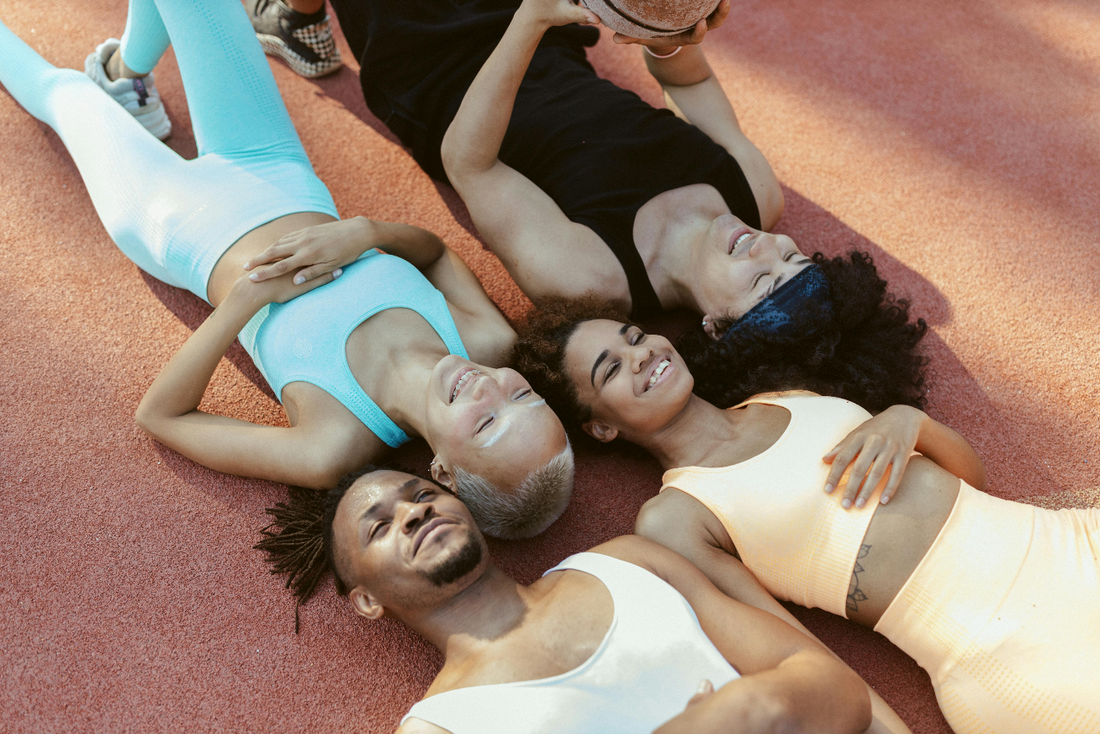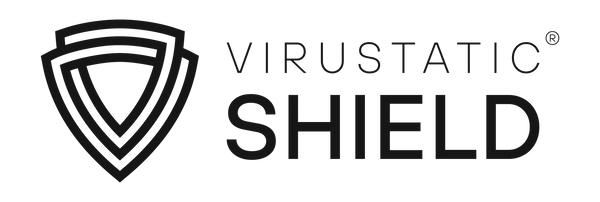
The science behind exercise, lactoferrin and your immune system
Share
As Autumn colds ramp up, and everyone seems to have the lurgy, we'd pay anything to feel better. But what if you could take matters into your own hands and reduce the number of sick days you take due to upper respiratory infections like the common cold?
Well, the truth is, there’s something that can already give your immune system a huge boost, for free, with no side effects at all. That thing is exercise! [i] Studies show that it can lead to a 25-50% reduction in sick days—and it's something we can all do.
The Power of Exercise and Your Immune System
Research shows that children who run around and play for just six minutes can see nearly a 50% increase in the levels of immune cells circulating in their blood.[ii]
But it's not just kids who benefit from physical activity. For older adults, regular exercise can also help prevent age-related immune decline. One study found that elderly, sedentary women had a 50% chance of catching an upper respiratory illness in autumn, but those who started walking just 30 minutes a day reduced their risk to 20%.[iii] Among conditioned elderly runners, the risk was only 8%[iv], showing exercise can make the immune system up to five times more effective at fighting infections. [v]
How Does Exercise Decrease Infection Risk?
It all comes back to immune-boosting proteins like lactoferrin. About 95% of infections start at mucosal (moist) surfaces, such as the eyes, nostrils, and mouth[vi], which are protected by antimicrobial proteins, including lactoferrin, lysozyme, and antibodies like IgA. These provide a barrier that helps neutralise viruses and keeps them from entering the body. Lactoferrin, in particular, is a first line of defence against respiratory infections like influenza.
In a 2017 study, participants who ran for 45 minutes at high intensity saw their saliva lactoferrin levels double, showing the body naturally increases lactoferrin production during exercise to decrease inflammation and promote viral protection, adding further evidence of the anti-inflammatory effects of exercise.[vii]
Additionally, those who performed aerobic exercise for 30 minutes, three times a week for 12 weeks, saw a 50% increase in IgA levels and reported significantly fewer respiratory infection symptoms. [viii]
Moderate exercise may be all it takes to boost innate lactoferrin and IgA levels and significantly reduce the chance of coming down with flu-like symptoms.
Is More Exercise Always Better?
You can have too much of a good thing. While moderate physical activity improves immune function and lowers respiratory infection risk, sustained and intense exertion may have the opposite effect. As you go from inactive to active, infection risk drops, but there is a tipping point where overtraining can suppress your immune function.[ix] This happens because sustained and intense exertion causes physiological stress, leading to a drop in critical immune cells, such as neutrophils ( a type of white blood cell that are a vital part of the immune system and are among the first responders when viruses or bacteria invade the body) and natural killer (NK) cells, which are essential for defending against infections.
After events like marathons and ultramarathons, runners reported a two- to six- fold increase in upper respiratory tract infections.[x]
As for professional athletes, a group of Premier League football players were found to suffer a significant drop in their IgA production just one day into an international tournament.[xi] This drop has been tied to upper respiratory tract infections. Other studies have found that IgA levels can drop after even just a single session of over-strenuous exercise.[xii]
So, after intensive exercise, the evidence shows that there is an open window with a high risk to respiratory infections.
How to Protect Yourself from Overtraining’s Effects
If you're a serious athlete - or someone who struggles to exercise regularly - you might wonder what you can do to protect your immune system.
Traditional sports medicine or NHS recommendations don’t appear to have much to offer: They’ll tell you to get a flu or covid jab, avoid touching your eyes, nose and mouth, and to stay away from sick people and crowds.[xiii]
However, respiratory infections can also be triggered by reactivations of latent viruses already inside the body, such as Epstein-Barr virus (which causes Glandular Fever). So, even if you never came into contact with anyone else ever again, as soon as your immune function dips, these dormant viruses could return and make you sick.
Thankfully, supplementing with bovine lactoferrin may help maintain your immunity and keep the germs at bay. A study on the effects of a bovine lactoferrin supplement, such as IMMUNE SHIELD, taken orally, showed significant increases in the percentage of neutrophil precursors in the blood.
The placebo group in this study, who did not take an oral bovine lactoferrin supplement, showed no such increase in neutrophils. Furthermore, the volunteers that took the bovine lactoferrin supplements also showed a profound decrease in the biomarkers of inflammation in their blood samples.[xiv]
Natural Killer Cells and Lactoferrin
Studies highlight how post-exercise immunosuppression increases the risk of illness, particularly respiratory infections, in athletes.[xv] Supplementing with lactoferrin may help counterbalance this immune suppression. Lactoferrin has been shown to support neutrophil function and enhance Natural Killer (NK) cell activity.[xvi] By promoting immune cell activity, lactoferrin helps athletes maintain better immune defence during periods of intense training, reducing their susceptibility to infections.
By staying active, keeping exercise moderate, and adding immune-boosting supplements like IMMUNE SHIELD, you can give your body the best chance to protect itself from infections and stay healthy.
[i] Nieman DC, Moderate exercise improves immunity and decreases illness rates. AM J Lifestyle Med, 2011;5(4):338-45
[ii] Schwindt CD, Zaldivar F, Wilson L, et al. Do circulating leucocytes and lymphocyte subtypes increase in response to brief exercise in children with and without asthma? Br J Sports Med. 2007;41(1):34-40.
[iii] Nieman DC, Henson DA, Gusewitch G, et al. Physical activity and immune function in elderly women. Med Sci Sports Exerc. 1993;25(7):823-31
[iv] Nieman DC, Moderate exercise improves immunity and decreases illness rates. AM J Lifestyle Med, 2011;5(4):338-45
[v] Nieman DC, Moderate exercise improves immunity and decreases illness rates. AM J Lifestyle Med, 2011;5(4):338-45
[vi] Meville V, Gleeson M, Folland JP Salivary IgA as a risk factor for upper respiratory infections in elite professional athletes. Med Sci Sports Exerc. 2008;40(7):1228-36
[vii] Gillum T, Kuennen M, McKenna Z, Castillo M, Jordan-Patterson A, Bohnert C. Exercise increases lactoferrin, but decreases lysozyme in salivary granulocytes. Eur J Appl Physiol. 2017 May;117(5):1047-1051.
[viii] Klentrou P, Cieslak T, MacNeil M, Vintinner A, Plyley M. Effect of moderate exercise on salivary immunoglobulin A and infection risk in humans. Eur J Appl Physiol. 2002;87(2):153-8.
[ix] Nieman DC, Moderate exercise improves immunity and decreases illness rates. AM J Lifestyle Med, 2011;5(4):338-46
[x] Walsh NP, Gleeson M, Shephard RJ, et al. Position statement. Part one: immune function and exercise. Exerc Immunol Rev. 2011;17:6-63
[xi] Akimoto T, Nakahori C, Aizawa K, Kimura F, Fukubayashi T, Kono I. Acupuncture and responses of immunologic and endocrine markers during competition. Med Sci Sports Exerc. 2003;35(8):1296-302
[xii] Neville V, Gleeson M, Folland JP. Salivary IgA as a risk factor for upper respiratory infections in elite professional athletes. Med Sci Sports Exerc. 2008;78(5):496-501
[xiii] Nieman DC. Exercise effects on systemic immunity. Immunol Cell Biol. 2000:78(5):496-501
[xiv] Zimecki M, Spiegel K, Właszczyk A, Kübler A, Kruzel ML. Lactoferrin increases the output of neutrophil precursors and attenuates the spontaneous production of TNF-alpha and IL-6 by peripheral blood cells. Arch Immunol Ther Exp (Warsz). 1999;47(2):113-8.
[xv] Pedersen, B. K., & Hoffman-Goetz, L. (2000). Exercise and the immune system: regulation, integration, and adaptation. Physiological Reviews, 80(3), 1055-1081.
[xvi] Actor, J. K., Hwang, S. A., & Kruzel, M. L. (2009). Lactoferrin as a natural immune modulator. Current Pharmaceutical Design, 15(17), 1956-1973.
